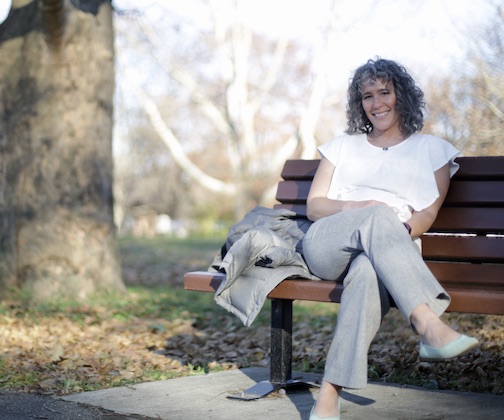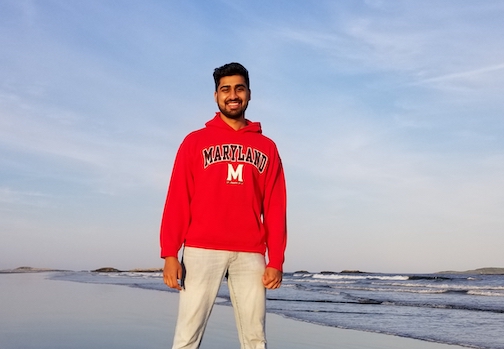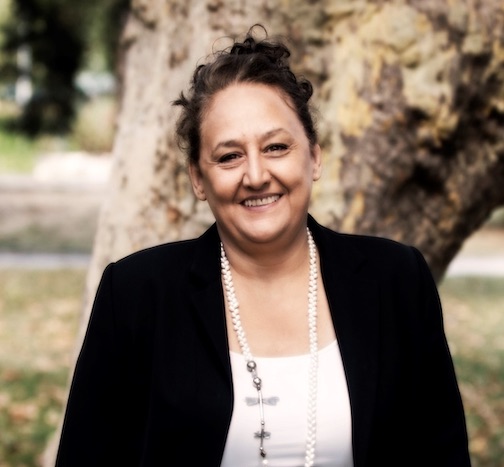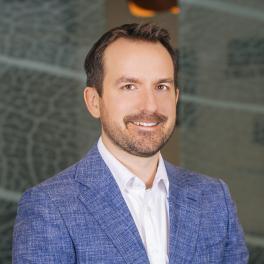Tell us about your background and what got you interested in community engagement and health innovation?
I don’t think I’ve ever really talked about this publicly. I grew up with abundant access to whatever I needed. As a young kid I was diagnosed with a learning difference that outlined why I was a late reader. My parents were able to provide me access to the resources and schools to help me learn skills and strategies to overcome/work with these learning differences.
For the first part of my career, I worked in electoral politics moving around the country helping progressive candidates raise money, reach voters and hopefully win to make a difference for our country. At the time I was driven by both my competitiveness and belief in the cause and candidate. Reflecting now, I think my main driver was a sense of giving back/forward to kids like me that maybe did not have the same access to whatever resource they needed to overcome whatever confronted them.
After a stint raising money for a regional food bank and helping launch a community backed hunger and health initiative, I saw with relative clarity that health care as an issue area is uniquely positioned to level multiple disparities. Powered by a community of innovators, the collective ‘we’ is well positioned to drive Triple Aim impacts and realize an actual health care system that levels disparities in ways other issue areas cannot.
Tell us about the neighborhood or different locations that you work in.
My neighborhood in northeast Seattle offers my and my wife (or me and my coworker as we currently refer to each other) access to nature with a food forest, a small park with ponds, and Lake Washington within reach. We don’t take enough advantage of our urban outdoor environment and find ourselves indoors often. My working environment rotates between a home office and an occasional escape to an unheated, nonelectrified, shed just within WIFI range.
How has your routine changed since the pandemic?
Pre-pandemic, the Seattle based Cambia Grove team enjoyed the chance encounters and many dynamic conversations in our co-working and event space downtown. This newer routine is far quieter. I am typically an earlier raiser and try to get the ‘harder’ stuff out of the way first. Most days are fairly packed with programmatic work, team meetings, introductory calls with interested innovators, and targeted outreach to key stakeholders to support whatever initiative is on deck.
How does trust play a role in your daily work routine, especially in the current Covid atmosphere?
Trust is the foundation for everything we do. As a neutral convener, Cambia Grove depends on bringing in perspectives of all types to fully form the landscape and outline the challenges health care faces. Showing preference to any one entity would quickly erode our credibility. So, it is particularly critical, as we enter 2021 and begin to re-stitch societal trust at large, that the health innovation community lead by example.
At our core, we’re talking about problems and solutions. Many of the biggest problems we face—systemic racism and the subsequent health inequities it produces, to the regressive fee-for-service payment model—rightly challenge stakeholders to reevaluate current power structures. The solutions we are building often require community input to realize their full impacts. This requires a great deal of trust as, among many things, intellectual property is at stake. If we are going to succeed in this problem and solution space, we need to trust one another to show up with vulnerability and good intentions in equal parts.
What do you wish the public knew about what you experience, in your field of community health engagement?
If one ever needs a boost of optimism, just look into the work that health innovators are doing. This group, (of inherent optimists), is bringing actual solutions to some of the most complex problems of our time. From my desk, I have the privilege of seeing this every day.
What is the best part of your day? The hardest?
The best part of my day is working with some of the smartest and focused group of people I’ve ever worked with. From the Cambia Grove team to the community of changemakers we help convene, being in proximity to this work is a daily thrill.
The hardest part of my work is having some visibility into immense inequities of our health system. I have the honor to serve on two committees with a couple organizations (Food Lifeline and Project Access Northwest) who are doing incredible work to help our communities meet current needs. The magnitude of need, however, has only increased. So, on one hand, I have glimpses into the future of care but also some active insights into the disparity too many of our neighbors face today.
Will Covid-19 change your approach to your work going forward?
I hope so. While I really look forward to the return to in person life, the increased access to Cambia Grove’s resources and the virtual community we have built with folks from all over the world is powerful and cannot be put back in the box. Even in our Seattle location, access to our space and work is often limited to those who live/work downtown, can navigate rush-hour traffic, and mange childcare. Democratizing access to our work and the resources around the world innovators need to succeed is a calling we must all take on.
What is the best life/career advice anyone has ever given you?
1. Take the work seriously but not yourself.
2. Have fun and ask Why?
Can you recommend one easy, daily self-health practice that can help people get through the day?
Stretch! To my fellow keyboard hunched colleagues, find some sort of strength and flexibility routine that works for you!
Is there anything else you’d like the public to know about how it feels like to engagement director growing and fostering a growing virtual community the middle of a global pandemic?
“Life is a storm my young friend. You will bask in the sunlight one moment, be shattered on the rocks the next. What makes you (a person) is what you do when that storm comes.” -- Alexandre Dumas
Amidst the pandemic, and as we round out of the darkest days in the northern hemisphere, let us be lighthouses to others. At our best, our growing community of health innovators are sources of light that can guide one another through these stormy waters
In this analogy I feel like a lighthouse builder, laying a few building blocks for others to elevate their insights and generosity to others.
More Stories from Kinnected

At times, it has been really frustrating to be a strategist and health communication professional and witness the lack of strategic planning and messaging that we have over the last two years.
-
3 years ago

"What many people miss is that emotional exhaustion among clinicians existed long before the pandemic."
-
4 years ago

"A lot of people argue whether technology is good for the future of humanity or bad. In my opinion, it is both - just as an herb could be a poison or a medicine."
-
4 years ago

